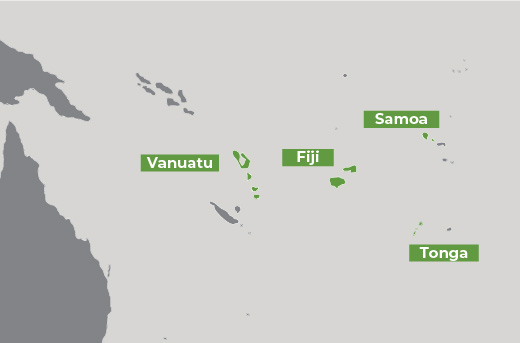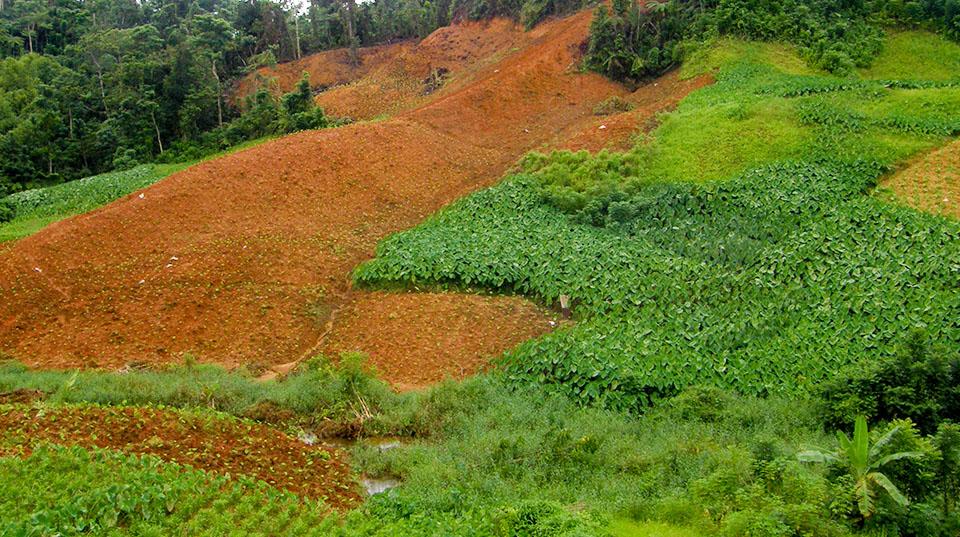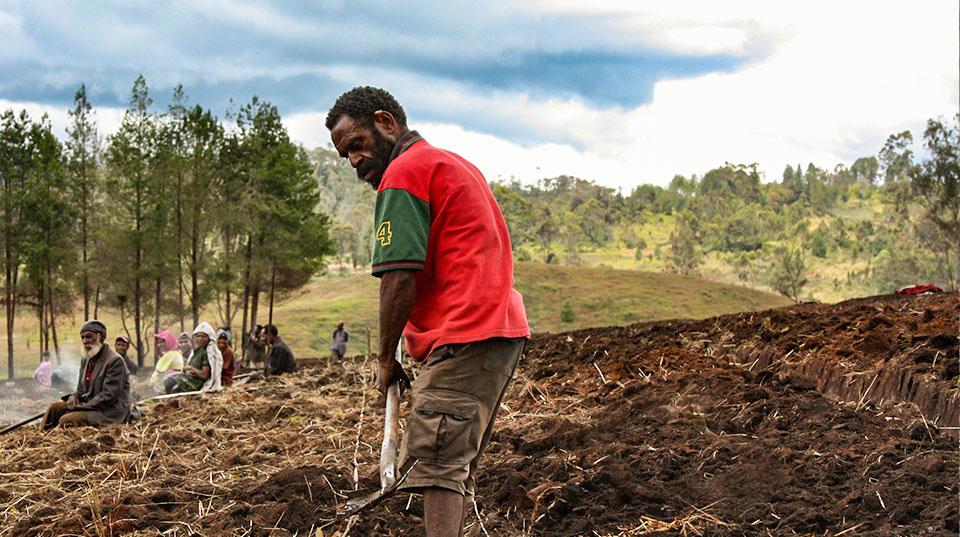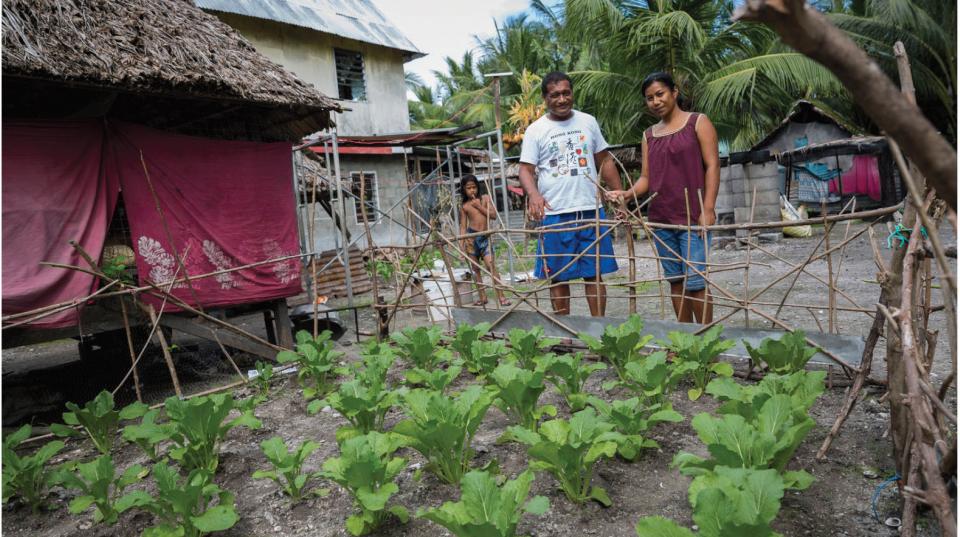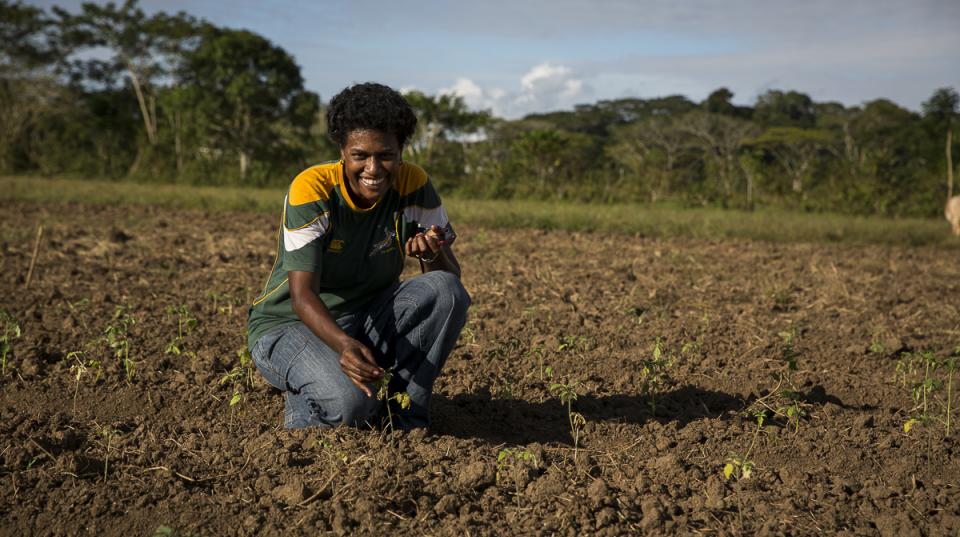Overview
This project aims to improve farming systems resilience in the Pacific Islands and Countries and Territories through improved soil management, by building capability to deliver new and improved soil information streams enabled by cost-effective modern soil information systems.
Sustainable agriculture is fundamental to the future prosperity and food and nutrition security of Pacific Island Countries and Territories (PICTs). Commercial farming, often in mechanised mono-cropping systems, is an important source of food, employment and export revenue in countries including Fiji and Tonga (van der Velde et al. 2007).
Intensification of food production systems is increasing in importance due to population growth and expansion of income opportunities for produce in international and domestic markets. This project will transfer the operation of the Pacific Soils Portal (soil information system) from Manaaki Whenua Landcare Research (MWLR) to the South Pacific Community (SPC). The Soils Portal will be expanded to include Vanuatu and to improve the linkage to the agriculture policy, advisors, and extension cohorts. This linkage will be facilitated through the focus on the characterisation of soil carbon state and trend, and identification suitable farming management with landholders.
The team will develop capability to utilise field-based technologies such as near-infrared (NIR) rapid nutrient analysis, portable x-ray fluorescence (pXRF) and laboratory based mid-infrared (MIR) technologies to quantify soil health, centred on soil carbon as a proxy, and functional attributes. NIR will be trialled as an in-field tool by agricultural extension officers as means to deliver timely soil information to landholders as well as providing soil information to the Pacific Soils Portal.
It is believed that these technologies are suitable for Pacific Island extension agents due to their portability, robustness, ease of use, affordability, and delivery of timely and valuable soil information. Combined, these analytical attributes will lead to deeper understanding of soil health and function in the region to underpin new evidence-based land management practices to achieve improved land use planning, profitable agriculture, and resilient and sustainable landscapes.
The project will characterise soil carbon state and trend, and identification with the landholders of suitable farm and soil management practice to improve soil carbon status. The project's ultimate impact will be recognised by citizens of Samoa, Tonga, Vanuatu, and Fiji benefitting from improved land resource planning, more profitable agricultural land uses, improved soil health, and resilient and sustainable landscapes through easy access to relevant soil information. Although this goal lies beyond the scope of this project, the outputs are designed to deliver the building blocks for this to happen beyond the project's life.
Expected project outcomes
- Improving soil health measurements through proximal sensing to determine soil resilience and sustainability status.
- Capacity-building of USP agricultural undergraduate students who, upon graduation, will have greater exposure to farming systems research and interaction with international research, growers, government, and business.
- Training students in advanced analytical thinking and research design.
- Supporting current and future female soil science leaders, MSc and/or PhD in the Pacific through scholarships, including John Dillon Fellowship, John Allwright Fellowship or University of the South Pacific, and other training, mentoring, and learning opportunities.
- Improving the capacity of extension officers and other stakeholders to collect and use soil information for improved production.
- Bringing together farmers, exporters, extension agents, researchers and other stakeholders, to share information and experience to support improved farming practices.
- Increasing awareness of farmers connected with the project and its associated outputs, of the soil state and function and the importance of soil health and quality.
- Enhancing the soil and plant analytical capability, including data management and soil monitoring for all PICTs organisations engaged in domestic agricultural supply chains.
- Enabling SPC to manage geospatial data on behalf of the PICTs and utilise the Pacific Soils Portal for integrated planning and R&D projects.
- Deepening skills of PSC staff in information systems management, development, operationalisation, and delivery.
